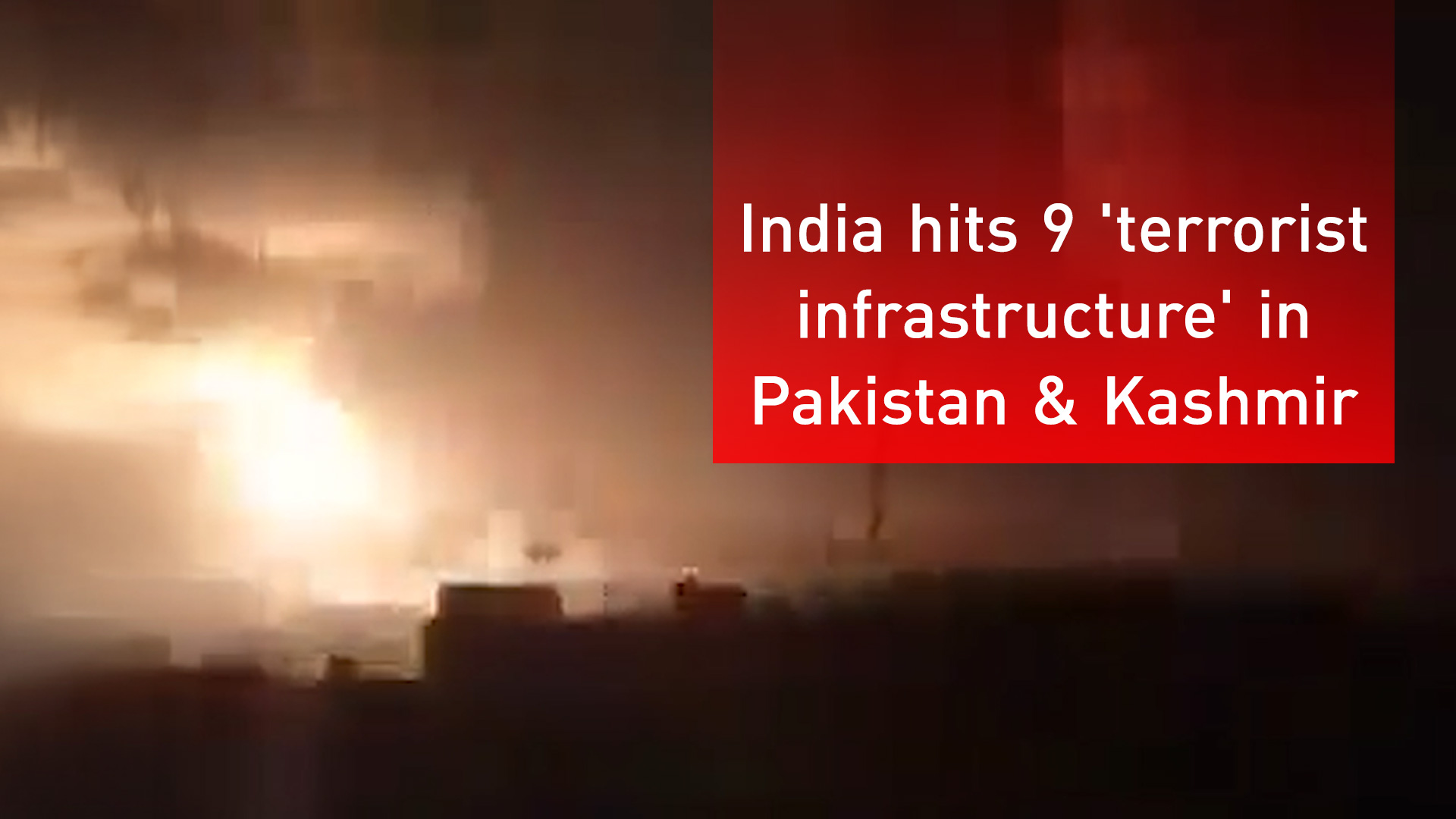India Strikes Targets in Pakistan, Islamabad Vows Response
The Indian army said it carried out a "precise strike on terrorist camps" inside Pakistani territory.

By Ahora Qadi
ERBIL (Kurdistan24) – A simmering crisis between nuclear-armed India and Pakistan surged dangerously closer to open conflict late Tuesday, as India launched missile strikes on targets within Pakistani territory, in what it claimed was a response to terrorist activity. The escalation follows a deadly attack on Indian tourists in Kashmir, raising fears of a broader confrontation with catastrophic implications.
India Launches Retaliatory Strikes, Hits Multiple Targets in Pakistan
In a dramatic escalation of hostilities, the Pakistani military confirmed that India fired missiles at three separate locations inside Pakistan, including areas in Kashmir and Punjab provinces. One of the missiles reportedly struck the old airport in Muzaffarabad, situated in Pakistan-administered Kashmir.
Pakistan’s military spokesperson condemned the attacks and warned that Islamabad would retaliate. The government reported that three civilians were killed and twelve others wounded in the Indian strikes.
India's government later acknowledged it had initiated what it described as a "targeted military operation" aimed at dismantling terrorist infrastructure in both Pakistani territory and the Indian-administered Jammu & Kashmir region. The Indian army stated that it had bombed nine locations, characterizing them as “terrorist camps” allegedly linked to groups responsible for recent violence.
April 22 Attack on Indian Tourists: The Catalyst
The missile exchange comes in the wake of a brutal April 22 attack that killed 26 Indian tourists in the mountainous Bahlgam region of Indian-administered Kashmir. Several others were injured in the assault, which was claimed by a Pakistan-based anti-India militant group identifying itself as the Teeba Army. The incident, one of the deadliest in Kashmir’s recent history, drew widespread international condemnation and reignited longstanding tensions between the two neighbors.
The attack has refocused global attention on the fragile and combustible relationship between India and Pakistan, both of whom claim the disputed Himalayan region of Kashmir and have fought multiple wars over it since their partition in 1947.
A Dangerous Historical Context
While the two nations have periodically exchanged fire across the Line of Control, full-scale military confrontations have remained rare in recent years. The last major clash occurred in 2019, following a similar pattern of militant attacks and cross-border retaliations. However, unlike past episodes, the specter of nuclear conflict now looms larger than ever.
Both countries officially became nuclear powers in 1998 and maintain active arsenals. Though their stockpiles are relatively modest compared to global superpowers, their strategic proximity and deep-rooted hostilities render South Asia one of the most dangerous nuclear flashpoints on the planet.
Nuclear Doctrines and Strategic Uncertainty
India adheres to a declared no-first-use policy, reserving the right to retaliate only if struck by a nuclear weapon. Yet in recent years, Indian defense planners have hinted that this policy may evolve in response to shifting security threats.
Pakistan also maintains a no-first-use doctrine but with significant caveats. Islamabad has repeatedly signaled that it would not hesitate to deploy nuclear weapons if it perceives an existential threat—particularly in the case of a large-scale conventional military incursion.
Given the volatility of the current standoff and the nationalist rhetoric intensifying in both capitals, analysts fear that a miscalculation, whether deliberate or accidental, could trigger an uncontrollable spiral.
A Regional Flashpoint with Global Stakes
With a combined population exceeding 1.5 billion, and densely populated cities on both sides of the border, any nuclear confrontation would lead to unprecedented human, environmental, and geopolitical consequences. Radioactive fallout would not recognize borders, and economic reverberations would ripple far beyond South Asia, destabilizing global trade, markets, and strategic alliances.
The international community has called for immediate de-escalation and the resumption of diplomatic dialogue. However, such calls have so far gone unheeded amid hardened political postures and surging nationalist sentiment in both India and Pakistan.
The World Holds Its Breath
As missile strikes give way to vows of retaliation and geopolitical rhetoric intensifies, the fear of a nuclear clash is no longer a distant possibility—it is a looming threat. The region stands at a critical juncture where restraint and diplomacy are urgently needed to avert disaster.
The international community now watches with grave concern, hoping that both Islamabad and New Delhi step back from the brink before the cost becomes unthinkable.
Unless cooler heads prevail, the Kashmir crisis could ignite what many fear would become the world’s first nuclear war of the 21st century—a war with no victors, only victims.
The moment India bombs sites inside Pakistan with precision missiles... Tensions escalate on the Kashmir border.
— Kurdistan 24 English (@K24English) May 6, 2025
🔗 https://t.co/yWWH4Xyf4Q pic.twitter.com/0EAb9dJTBd